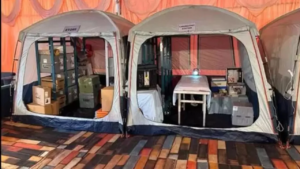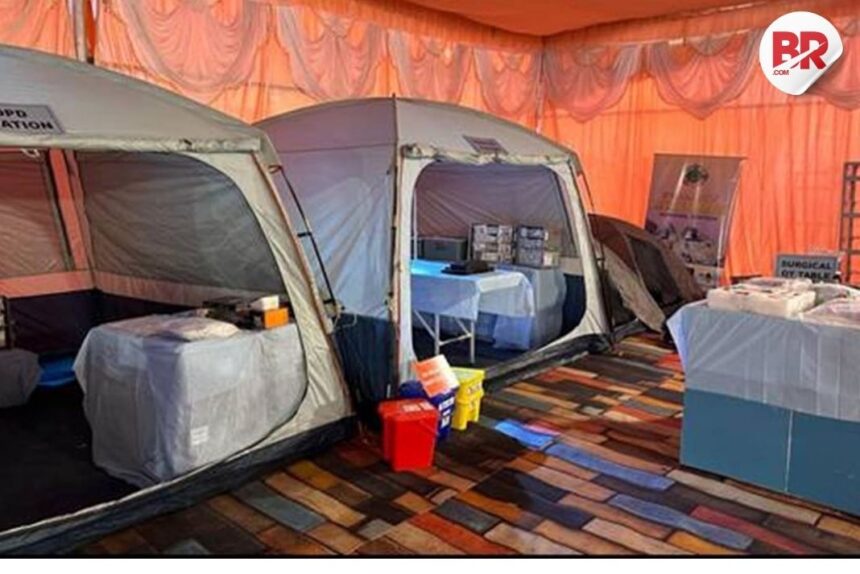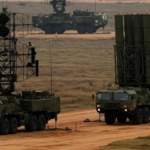
Due to rising tensions between India and Pakistan, India has sent special portable hospitals to border areas to prepare for emergencies. These hospitals are designed to treat serious injuries, such as bullet wounds, fractures, and severe bleeding. They have been delivered to key hospitals near the borders to ensure quick medical help if needed. In addition, 2,000 healthcare workers have been trained to use these portable hospitals.
Also See: Air India Suspends Tel Aviv Flights Until May 25 Amid Rising Tensions

The hospitals, called BHISHM Cubes, were developed in India. Experts from HLL Lifecare Limited have been delivering and setting them up at large hospitals close to the borders, including in Jammu, Rishikesh, Bhatinda, Kolkata, and Shillong. One Cube is already located at the Sher-i-Kashmir Institute of Medical Sciences, which is close to the border and can be moved to the frontlines if necessary.

Read More: IMF’s $1 Billion Loan to Pakistan Raises Questions – Omar Abdullah and Others Express Concern
Union Health Minister JP Nadda recently held a meeting to review the readiness of the health system. Hospitals are being told to ensure they have enough medicines, blood, oxygen, and trauma care kits. Doctors and nurses have been sent to major hospitals like AIIMS, PGIMER, and JIPMER, and mock drills have been held. A 24-hour command center will help coordinate the efforts and support state hospitals.
What is a Cube?
A Cube is not just a simple first-aid tent. It is a full hospital that can handle serious medical situations. It includes an operating room and various medical equipment to treat injuries. The Cube consists of two large sections, made of smaller units, which contain medical supplies and medicines. These hospitals can treat bullet wounds, fractures, and severe bleeding.
The Cubes also have the ability to collect blood from local donors. They include equipment to test blood for infections, such as HIV and hepatitis, and can match blood types for transfusions. This means that if blood is needed, it can be taken from local donors.
Also See: Why India Targeted These 3 Pakistani Air Bases: Nur Khan, Murid, and Rafiqui
So far, 2,000 healthcare workers have been trained to use the Cubes, and some of them have become master trainers, able to train others. This number of trained personnel is enough in case the Cubes need to be deployed.
How Big is a Cube?
These portable hospitals can handle 200 different kinds of health emergencies. They were first shown by India during its G20 presidency.
Are the Cubes Effective?
Last year, India sent some of these Cubes to Ukraine to help with medical emergencies. One Cube was also used during the Ram Temple inauguration in Ayodhya, where it helped save the life of a heart attack patient with hospital-quality care.












